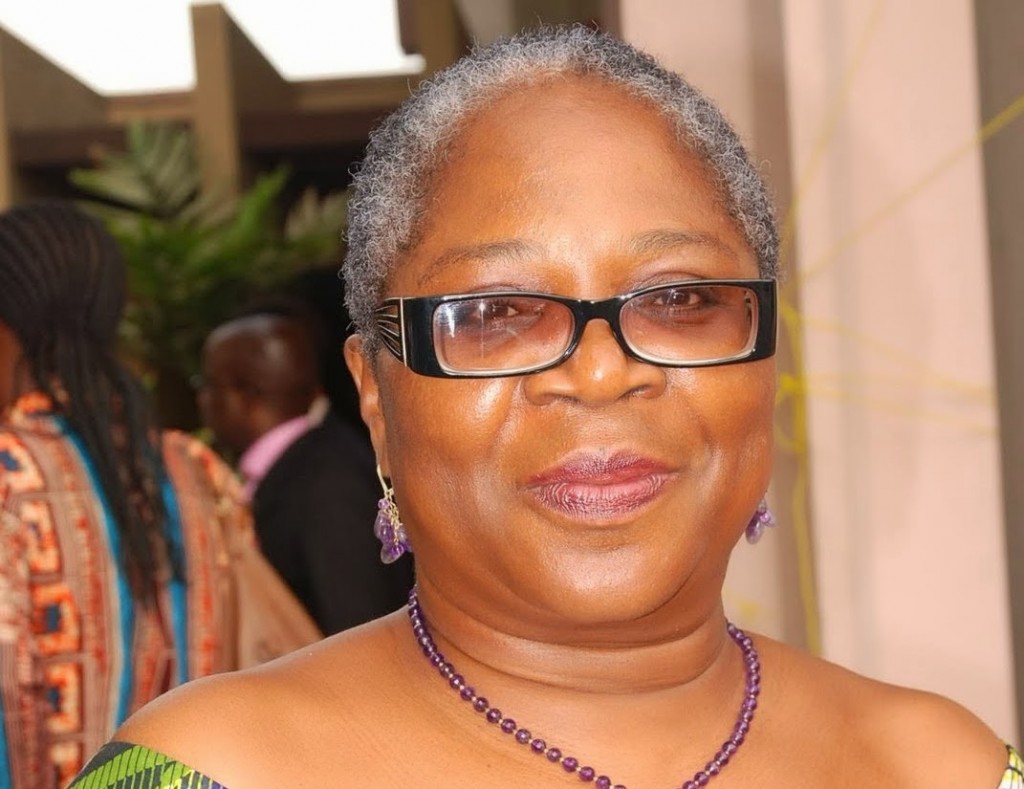Onyeka Onwenu, a Nigeria’s lady of songs, activist journalist, has said the Igbo people will make no apologies for going to war with Nigeria, as according to her, Biafran War was a war brought on them and they had to fight in self-defence.
Onwenu who spoke on Monday, January 20, 2020, in Lagos at the ‘Never Again Conference’ organised by Nzuko Umunna, an Igbo sociocultural group, to mark 50 years since the end of the Biafra war in 1970, also recalled how her widowed mother’s property was seized in Port Harcourt, Rivers State after the war.
She said the Biafran War is a very sensitive and painful matter that ought to be addressed.
“This is a subject matter that is very close to our hearts,” she said. “It’s very personal to very many of us, very sensitive matter; very painful matter indeed. And yes, some of us have lived with some bitterness. And we make no apologies about that. We were a people in war, led into war, not by our own wishes or design, but in self-defence. No apologies Nigeria, no apologies to the world.
“But here we are. I was born and raised in Port Harcourt. My father, Dike Onwenu was the first Arondizuogu man in the federal house, and he was representing Port Harcourt constituency. He was the principal of Enitonna High School. He was a brilliant man. But he died too early. I’m from Abia State since I’m an Aro daughter. I’m from Imo State, Arondizuogu and I’m also from Anambra where my mother comes from. I can go there and live and nobody can stop me.
“I’m also from Lagos State. I married a Yoruba man. I have two Yoruba children.”
Onwenu said she experienced the Biafra war and recalled many children and aged people dying in her care. She regretted that the war has not yet ended, and warned those still fighting the Igbo to be careful.
“I fought the war as a young girl between 14 and 17 years, and I lost many relatives. I carried babies who died in my arms. I treated old people who took days to die. People were dying of hunger, even our soldiers were dying out of hunger. But thank God we survived.
“When my father died at 40, he was a politician and also a principal. But he didn’t have much money. In those days, you had to keep your day job, even if you were a member of the House of Representatives. Yes, my mother, an Anambra woman, was a trader. She was richer than my dad, so my dad would borrow money from her to buy land and he never paid back. You know how it is with husband and wife.
“At the end of the war, I couldn’t go back to Port Harcourt. My home was abandoned property. Those of you who come from Port Harcourt know the story. The home that a widow, my father had only laid the foundation when he died in an accident; the building that a widow built was seized as abandoned property.
“And living just adjacent to us on Hospital Road were the Ikokus. In fact, I thought we were related because every family in Port Harcourt was together. You didn’t care were anyone came from or who they were, whether you were from Port Harcourt or not. Every parent had the right to reprimand a child he/she saw misbehaving. Port Harcourt was a beautiful town, but we couldn’t get back to it.
“So, for me, the civil war never ended, it is still going on. My poor mother went back to Port Harcourt to claim her property and she was beaten into a coma by people whom she had helped all her life; people she had helped to send to school, because she is an Igbo woman and now Port Harcourt belonged to another group of people.
“They forgot the sacrifices that the Igbo made. It is still going on, no apologies have ever been made about that. The road that is now referred to as Harold Wilson Road used to be Dike Onwenu Road. That’s on account of the sacrifices that the Onwenus, the Ikokus, and the rest, made in building up Port Harcourt.
“Here I am. I travelled outside, thanks to my sister who was at Harvard at the time. But we all came back to develop Nigeria. I have tried with the little talent that God has given me, to use it to the betterment of my society and my country. But if I were a Yoruba or a Hausa woman, I would probably have had more patronage, more help and more support than I have got by my self-help effort to raise this country up.
“But I’m not asking anybody for anything. I put myself through school, my widowed mother did her best. I was working two jobs in America to put myself through school. I didn’t want to take the Nigerian scholarship because they were giving it to everybody, those who deserved it and those who didn’t. And many of them were not even in school.
“I’m angry at Nigeria, I’m angry at this government which seems to be letting us down. I’m angry at us as a people, I’m angry at my people, Ndigbo. Because he who is rejected doesn’t reject himself. Stop complaining and do it yourself. We have always been able to do that. How did we build Imo Airport? Nobody built for us. We spent many years raising money. I was travelling all over the country to do free concerts to raise money for Imo Airport. That’s who we have been. And I remember that in those days, if the Igbo State Union decides, that’s it, everybody follows the line and gets it done.”







